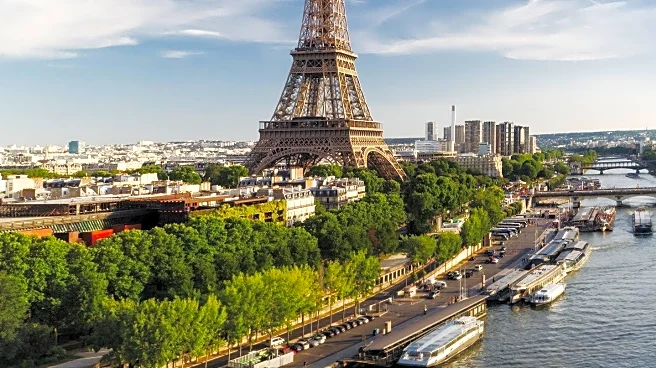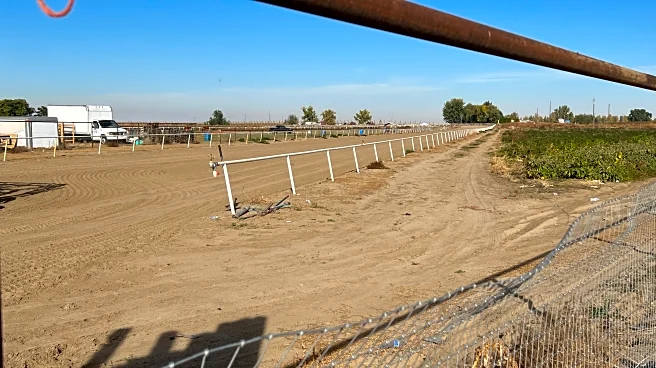What's Happening?
Paris is expected to welcome over 50 million visitors in 2025, surpassing the previous year's record of 48.7 million. This influx is driven by the city's iconic attractions such as the Eiffel Tower, Louvre Museum, and Notre-Dame Cathedral, which continue to draw international tourists. The economic impact of tourism is significant, contributing €71 billion in 2024 and supporting over 291,000 jobs. However, the high density of tourists poses challenges, including strained infrastructure and rising real estate prices, prompting local authorities to implement measures for sustainable tourism.
Why It's Important?
The anticipated surge in tourism underscores Paris's global appeal but also highlights the need for sustainable management to prevent overcrowding and preserve the city's livability. The economic benefits are substantial, yet the social and environmental pressures necessitate careful planning. Measures such as limiting short-term rentals and enhancing public transport aim to balance economic gains with community well-being. The situation serves as a case study for other major tourist destinations facing similar challenges, emphasizing the importance of sustainable tourism practices.
What's Next?
Paris has introduced several reforms to address the challenges posed by mass tourism. These include restrictions on short-term rentals, simplified public transport tariffs, and designated swimming areas in the Seine. The city is also implementing traffic limitations in central areas to reduce pollution and improve pedestrian safety. These initiatives are designed to distribute tourism more evenly and promote eco-friendly choices, ensuring Paris remains a desirable destination while safeguarding its infrastructure and community.
Beyond the Headlines
The reforms in Paris reflect broader trends in urban tourism management, where cities are increasingly prioritizing sustainability and community engagement. The measures taken by Paris could influence other cities facing similar issues, encouraging a shift towards more responsible tourism practices. Additionally, the cultural and historical significance of Paris continues to attract visitors, highlighting the need for ongoing preservation efforts to maintain its global charm.










